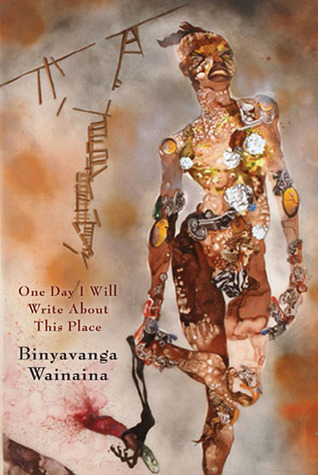
مطالعات فرهنگی و رسانه ایران
این تارنما به آخرین مباحث حوزه مطالعات فرهنگی و رسانه ایران با چشم انداز ارتباطی می پردازد.
مطالعات فرهنگی و رسانه ایران
این تارنما به آخرین مباحث حوزه مطالعات فرهنگی و رسانه ایران با چشم انداز ارتباطی می پردازد.نظرسنجی
روزانهها
همه- Columbia Journalism Review
- Poynter. | A Global Leader in Journalism
- Pew Research Center
- Global Media Journal
- UNDP - United Nations Development Programme
- UNICEF
- European Commission
- OECD Communications Outlook
- Information & Communication Technologies - World Bank
- UNESCO
- International Telecommunication Union
- Public Relations Society of America
- Center for Intercultural Dialogue
- Media, Communication and Cultural Studies Association
- ECREA – European Communication Research and Education Association
پیوندها
ابر برجسب
مطالعات فرهنگی و رسانه ایران مطالعات فرهنگی در ایران نشانه شناسی دکتر سید علی اصغر سلطانی دکتر مهری بهار نشانه زبانشناسی سیاست فرهنگی سیاست گذاری فرهنگی سیاست فرهنگ روش شناسی در مطالعات فرهنگی دکتر حمید عبداللهیان فرهنگ فردیناندو سوسور دکتر سید محمود نجاتی حسینیبرگهها
جدیدترین یادداشتها
همه- نگاهی تاریخی به سیاستگذاری فرهنگی در روسیه تزاری
- تفاوت عمل در فضای فیزیکی و عمل در فضای مجازی
- رقابت میان فضای مجازی و فضای واقعی
- کمبود وقت در جهان دو فضایی شده
- بهره وری مجازی در سیستم سوخترسانی کشور
- ترجمه بخش اول و متن کامل قدرت سایبر ژوزف نای
- در فضای مجازی چه می توان کرد؟
- واکاوی سیاست گذاری فرهنگی در جمهوری اسلامی ایران (آسیب ها و راهبردها)
- انوع شخصیت های اسطوره ای
- اسطوره شناسی؛ تاریخ آرمانی در مطالعات فرهنگی
- معرفی کتاب اصول و روش نگارش دانشگاهی؛ دکتر سلطانی فر
- رویکردهای نظری به روایت
- روایت شناسی
- معرفی و آموزش نرم افزار ماکس کیو دی ای (Maxqda)
- آرایه های ادبی در نشانه شناسی
- استعاره (Metaphor) در نشانه شناسی
- زبان به مثابه نظام ارتباطی
- اسم در نشانه شناسی
- روابط معنایی در واژگان؛ نشانه شناسی
- نگاهی به تحقیق «بازنمایی هویت جنسی در کتاب های زبان فارسی، انگلیسی و عربی»
نویسندگان
بایگانی
- مهر 1394 12
- شهریور 1394 16
- مرداد 1394 16
- تیر 1394 16
- خرداد 1394 15
- اردیبهشت 1394 16
- فروردین 1394 15
- اسفند 1393 16
- بهمن 1393 14
- دی 1393 15
- آذر 1393 15
- آبان 1393 15
- مهر 1393 8
جستجو
ژئوکالچر چیست؟
«مطالعات فرهنگی و رسانه ایران»- واژه های ژئوپلتیک و ژئوکالچر (زمین فرهنگ) معمولا در ادبیات کنار همدیگر به کار می روند. این به دلیل نوعی همپوشانی میان این دو عبارت است.
ژئو کالچر عبارت است از:
«values that are very widely shared throughout the world-system, both explicitly and latently»
نویسنده برای نمونه ای از ژئو کالچر می نویسد:
«The earlier centuries had already produced capitalism, a global axial division of labor, and a system of core states vying for hegemony over the emerging international political order. The French Revolution introduced two new fundamental cultural considerations into the politics of the capitalist world-system: political change was now seen as normal, and the locus of political sovereignty was now believed to be located not with monarchs but with “something much more elusive, the ‘people’” (p. 1).
These two momentous changes led to the emergence of “ideologies,” which Wallerstein defines as “political metastrategies” aimed at reconciling the striving for expanded popular sovereignty with the elites’ desire “to maintain themselves in power and to ensure their continuing ability to accumulate capital endlessly” (ibid.).»

سپس نویسنده به سه ایدئولوژی که بر این اساس در قرن 19 ایجاد شده است اشاره می کند و آنها را اینچنین بر می شمارد:
«Three main ideologies developed in the nineteenth century, each one locating itself “in opposition to something else” (p. 11). The first was conservatism, in reaction to the French Revolution; then came liberalism, which began as a negation of conservatism; last came socialism, which positioned itself as a rejection of liberalism.»
ادامه این مقاله را که داستانی بسیار زیبا دارد می توانید در سایت سیج مطالعه کنید.